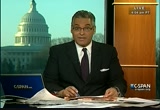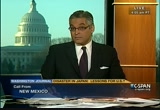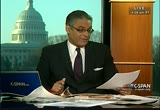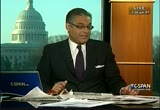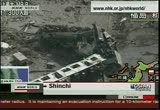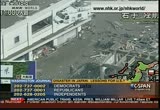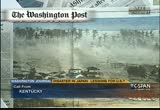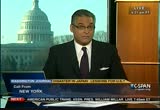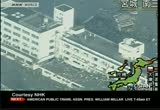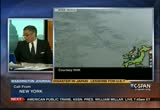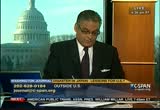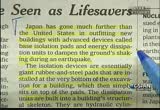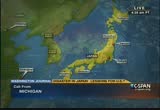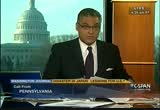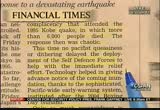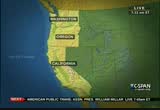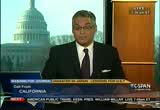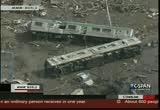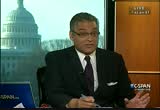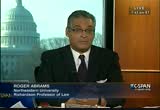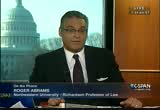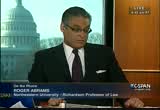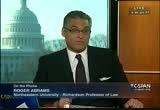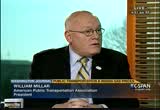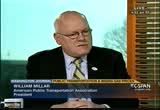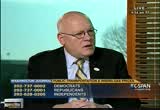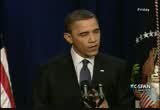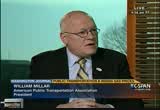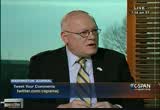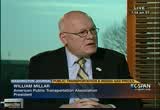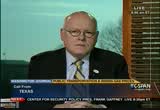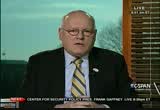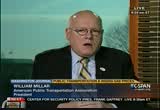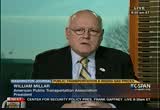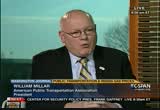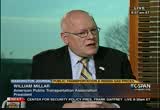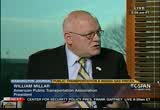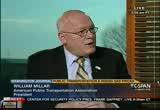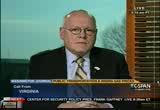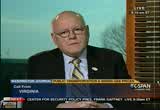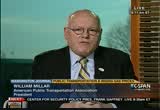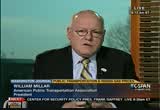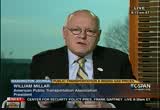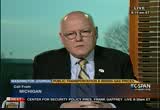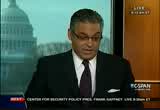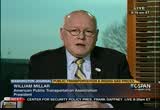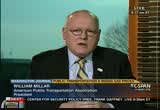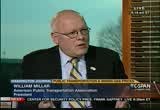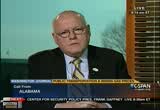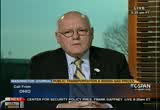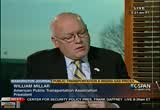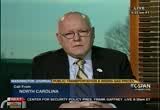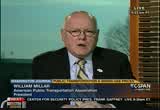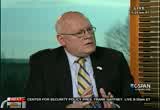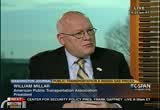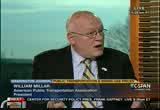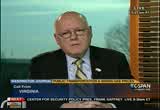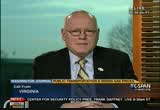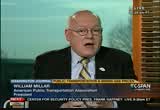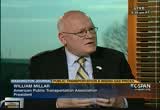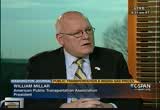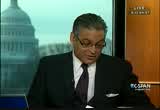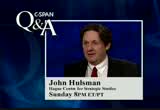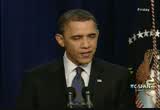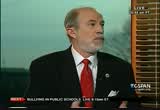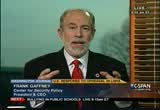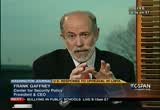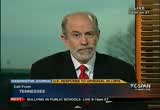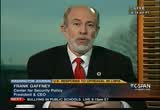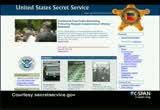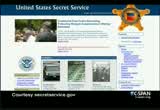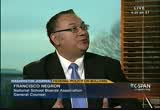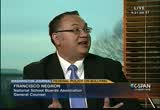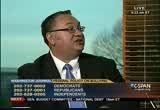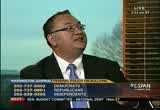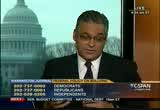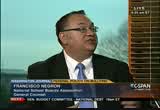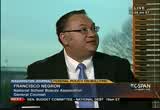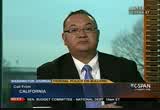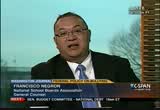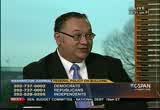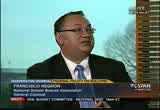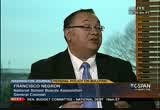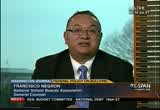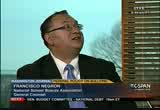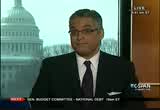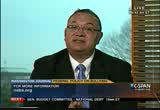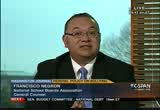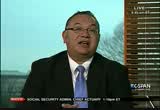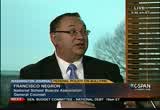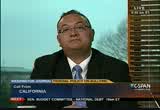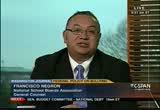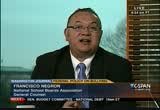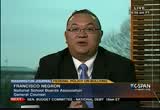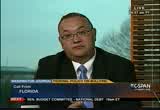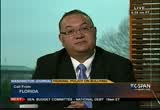tv Washington Journal CSPAN March 12, 2011 7:00am-10:00am EST
7:00 am
president william millar. frank gaffney talks about the u.s. response to the civil war in libya. and a look at the problem of bullying in schools with francisco negron of the national school board association. >> video this morning courtesy of al-jazeera. this is the nuclear reactor in japan. according to the associated press, an explosion there destroyed a building housing the reactor. and also there are fears that it could melt down after being hit by the earthquake and tsunami there in japan. again, those reports saying that large amounts of radiation were coming out in the evacuation around the plant expanded. but officials didn't know how dangerous at this time the leak was to people. again that courtesy there from al-jazeera this morning of the plant.
7:01 am
now, in related use, there are also reports this morning as far as those who are affected, 1,300 dead, 2,000 people in emergency shelters. as you see there, people waiting on top of buildings to be rescued by various means this morning. this courtesy of n.h.k. and also there and 50,000 emergency crews. we registered in finding out from you in our first 45 minutes this morning if what we were seeing in japan, not only with the disaster, but also in the reaction from the japanese authorities there, could prove threatening for the united states was preparing for a national -- natural disaster here. if you like to comment, here is how you can do so this morning.
7:02 am
here are the numbers at the bottom of your screen. if you want to e-mail your thoughts this morning, here is the address. you can also reach us on twitter. there are some pictures this morning. you have seen some of the videos from the headline. this is the "daily news" out of new york. also from the new york post, and the "financial times" with a picture about the quake and tsunami in japan.
7:03 am
7:04 am
california asking the question. this story is often the "covington post." -- huffington post." it goes into the long debate over budget cuts. the resolution proposed friday, lawmakers included many of the proposed cuts to noa. they run weather service information. that is a little bit of the political aspect. this morning, for us, if you feel there are lessons to be
7:05 am
learned from japan's incident and what is going on there, the numbers will be on your screen. you can also reach us via e- mail and twitter. we will keep that information up on the screens as well. let's go to a call. the first is from new mexico, republican line. charles, good morning. caller: i was curious. i have been watching tv since 2:00 this morning. they came on and said there had been an explosion at the nuclear plant. the building had blown up. the end result would be an evacuation washington all the way to chicago. why are not be prepared? i thought the president's address this morning was going to be in that address telling
7:06 am
people to prepare to evacuate. >> how do you think we stand as far as being prepared? you can talk about your own state as well as far as natural disasters are concerned. caller: we are not really prepared. we proved that with the hurricanes. host: new jersey, democrats line. caller: i think the lesson is that there is in a prepared mess for nuclear power. that is a big lesson. we should cut funding for nuclear power. the republicans have made cuts for things like n.o.a. and yet they want subsidies from major corporations for nuclear power.
7:07 am
30 years ago, we lived near an island. when it blew up or did not blow up, a lot of radiation was put out. no one had the correct story. we did not know if we should leave or how much radiation was out. it was very scary. we had a solar panels and great winds. we should get back to solar panels and a safe, clean energy. there is no disposal for the nuclear wastes. other countries like india have been able to make bombs out of the wastes from nuclear power plant. nuclear power is not save. host: how do you think the u.s. is prepared for natural disasters? caller: for anything that would hit a nuclear power plant, it would not be. there is one at seabrook.
7:08 am
it is very near to boston. there is no way for anyone to even get out of the 10 mile radius. we are not prepared at all. host: we will continue on in our for conversation. to get context on what is going on there, we are joined by an investigative reporter and, hagit limor, from cincinnati. what brings you to japan? guest: i am just moving around. i apologize. i am in japan, because i am the president of the national
7:09 am
association of journalists. we were in a tokyo yesterday morning. we went to another island. now we are back on the main island. i am in hiroshima when nuclear fears have been realized again in japan. >> what is the local reporting about the condition of the reactor? >> we are watching press conferences by officials at the nuclear plant and other government officials. they say that one of the systems did fail. it is a partial meltdown. they already have evacuated residents in a 6 mile radius.
7:10 am
anyone within a wider area needs to stay indoors. if you go outdoors, cover all of your skin. there is concern. they are not saying how much of any mission. they are not comparing it to any prior breaches elsewhere. it is hard to tell at this moment exactly how serious the breach is. host: can you give us an idea of the preparedness aspects, particularly surrounding the reactor? they jumped on it as soon as they realized there was an issue with the power. they could not could their cooling system to work. the 6 mile evacuation and then
7:11 am
10 kilometers, people should not leave. there weren't workers in there trying to cool the system. -- they had workers in there trying to cool the system. we are understanding that four of the workers were in there trying to cool it and were injured. we do not have any word as to any sort of injury. they are saying non-life threatening. it is still unfolding. host: can you give us the information the government is giving to the people? what is going on? guest: they seem to be as open as we would be in the united states. it is hard to tell if they are saying everything.
7:12 am
i have had more access in japan than you get in the united states in the sense that when the quake hit, we were interviewing the head of the disaster preparedness as his office was still implementing and planning on how to help people out. i felt that was impressive. as far as the information being given to the citizens, it has been nonstop coverage. throughout, there have been government officials on the air explaining what today are doing as far as search on the ocean and on the land. i believe they are informing the japanese people. whether they are taking information back or not, i cannot tell you.
7:13 am
host: there were reports of people waiting for rescue on tops of buildings. can you give us a sense of what you have experience so far regarding that? guest: we are seeing much of the same video that you have seen. people are drawing sos on rooftops or the little bit of dry land on areas where they are surrounded by water. we have seen video of helicopters rescuing people off of homes. officials are saying they have been going out 24/7. we work at an air force base yesterday, which had quite a few units of the disaster preparedness. this is what they train for.
7:14 am
president obama offered japan help. i understand that the united states is helping some of the search and rescue going on right now. host: tell us what the hon reported the story is -- unreported story is. guest: i would say part of its debt is hard to convey is the emotion going on. this was this nation's 9/11. that is the most appropriate thing i could compare it to. that is the sense of shock people are going through right now.
7:15 am
they are in disbelief. that is where this nation is retina. they know about earthquakes -- that is where this nation is right now. they know about earthquakes. they experienced four trimmers before the big earthquake hit. -- tremors before the big earthquake hit. they took that in stride. so they were ready. but nobody can prepare for a tsunami. and regarding the effects of nuclear plant, this is just unheard of. being here in hiroshima is quite chilling.
7:16 am
the city is still very sensitive to atomic issues. now they are looking at the first atomic reach that we know of that occurred since the devastation that ended the second world war. host: when do you expect he will be able to leave? guest: the airport is open today. i can leave at any time. i will not leave however for another week. we hope the journalists covering this as well as political leaders will get a sense of how they are reacting to this news. we are here to learn about american and japanese relations. we will be here through next thursday. host: how has social media played through coverage in the information passed along?
7:17 am
guest: amazing. it is daunting to think that i would have covered this in a different way. facebook is pretty new to japan. as far as the japanese people hemselves, tweakieting is something they will do more than facebook. keep in mind that the power was out in some areas. some people only need the cell phone. but coverage was very spotty. as far as coverage on our end, they are doing everything -- tweeting, facebook, skype reports.
7:18 am
host: hagit limor is an investigative reporter in cincinnati. we thank you for your time and input. guest: thank you. goodbye. host: we are trying to see how the u.s. is prepared for a natural disaster such as this. the numbers to call in are at the bottom of your screen. she said she could talk with officials in about one hour or so. most public and private companies " seldom give -- will seldom give good information according to this person. kentucky, go ahead. thanks for waiting.
7:19 am
you are on average democrat line. caller: -- are on our democrat line. caller:with the noa cuts the republicans are proposing, how is it going to affect our early warning? with the nuclear disaster we are looking at now,doesn't noa take care of all of that and play a role in first responders? host: we will try to get a sense of what they cover. as soon as we know that, we will share it with you.
7:20 am
caller: history is report -- repeating itself. the potential of one of the power plants being preached and possibly melting down has already occurred. in the second world war, six people died by the los crafted and launched by mainland japan. the steam produced, radiation produced from these meltdowns have the capability within a few days of reaching mainland united states. we should be getting potassium iodine and prepared to give it to children. host: new york. independent line. caller: i would like to know why
7:21 am
no one has asked about why the back of generators are placed on the ground where they can fail and get wet and cannot work to cool the nuclear reactors? why would they put them there? why are they not in an elevated position? how can a backup generator work if it is on the ground and it gets wet? no one has asked about this on any channel for the media i have seen. host: it is a design issue. any other concerns on how we prepare for natural disasters in light of this? caller: no. host: charlottesville, va., a democrat line. caller: this is the work of god.
7:22 am
host: buffalo, new york. caller: i would like to say to the first caller, he went into attack mode and blamed president obama for not notifying the public. we have to work together. we are all in this together. i would like to thank you for your coverage of this. host: before you go, can you share with you have seen over the news coverage and if there are lessons for us here in the united states? caller: there are many lessons. the reporters are working together. the government was sharing what they knew at the moment. we cannot interject our own feelings and political opinions in this. we are not prepared, because we are divided.
7:23 am
the next segment is about bullying. look at the rhetoric. they are bullying the public. people have to get together, because there is nothing to fear. we are all responsible human beings. the bullying segment is what i am really interested in. we are not prepared, because we are divided. the republicans are still trying to divide us. thanks so much for your coverage. host: we will do a segment of spending this week from the white house conference on bullying in school and on the internet. that will be at 9:15 this morning. you are more than welcome to stay with us to watch that. mobile, alabama, a democrat line. caller: the lesson for the united states here is it is not
7:24 am
a democrat, republican, or independent. we need to be penned as a nation. we need -- repent as a nation and cry out to god. host: next caller. caller: i will not minimize what is happening. i will not minimize what is happening with the reactor going on in japan. the concern i have is that our our facts -- our facts may not be correct. they could help put some things in perspective. the reactors are old. they date to 1971. airlines were probably frozen in the early 1960's.
7:25 am
-- their lines were probably frozen in the 1960's. we would never build a plant with this design. there are lessons to be learned from whatever transpires at the plant. many of them have already been incorporated in the design theory for the next round of reactors. host: you seem to understand about the design. see you have any input on my backup generators are on the ground? caller: when people discuss flooding, it is usually regarding flooding from a river where heavy rain. a tsunami, that was not considered at all at the time. not everyone location will see 10 meters high of water. new designs and to have their
7:26 am
cooling for emergency cooling systems much more robust and differently situated. it is far less likely that it would be a problem. there is probably a radiation release from the plant. most of it is probably trace levels of trash gm into steam. tritium and steam. these are not major releases at this time. become more severe, or they may not. we are in the three mile island generations of containment. host: we will leave it there. we appreciate the input.
7:27 am
7:28 am
we go to michigan, in a pan of line. -- independent line. caller: japan is a great country and is a technology is advanced -- technologically advanced. there is nothing wrong with us helping them out. it is a lesson learned by the u.s.. we have the same disasters in our own country. what would happen? who would help us? it would just be us. why do we, the american people, have to go around and help everybody else? we have our own problems going on in this country. host: how can we help us prepare
7:29 am
for natural disasters? caller: we can learn from other people's mistakes or from other countries. host: pittsburgh, pennsylvania, republican line. caller: this is really a design issue. with the new plants, the new designs, the chinese are building some. if all power fails, and generators to not work, it still calls itself. -- do not work, it still cools itself. we have nuclear reactors running
7:30 am
7:31 am
beverly hills, california. democrat line. caller: i am calling regarding some of the criticism that is coming in. we can learn something by thinking of safety measures, culture of order, and a centering ourselves and being as disciplined as the japanese have been with all of the disasters occurring there. no one knows what would happen if this amount of water with this velocity and how can one be prepared? if you have medication, you have a few seconds to get it. if you have safety measures in order, you have a few seconds to do it. i think everything is going as it could be since it is unplanned. there is no scuttling for this,
7:32 am
even if you have plans. -- scheduling for this, even if you have plans. host: how prepared are you given your coastal state? caller: i live in fear of this type of thing, because of where i live. i realize i live in earthquake country. i try to keep whatever medication i needed near may. i tried to have some type of exiting route near my home. there are certain places here that i would not go and try to find an open space. i tried to stay prepared. how prepared can you be when you cannot design, orchestrate, and settle an earthquake? host: how would you rate the ?tate's preparedness --
7:33 am
caller: we have improved over the last couple of years. we have local and general demonstrations of what to do. we are still learning and trying to do better. i wish the citizens would take a great sense of responsibility for learning what the city, state, and counties are trying to provide us. host: some photos of west hawaii today. this is a home in the aftermath there. maryland, you are next. caller: one of my favorite
7:34 am
things to do is to listen to c- span to attack washington journal." -- "washington journal." do we need to listen to each other and work together. we would be a much greater society if we would link up with other countries in working on how to prepare for these disasters. because we are so in tune to being paranoid and destructive -- we build missiles, we worship these kinds of institutions -- this is what we have. i highly recommend a "readingrun
7:35 am
in my shoes." we live in a society where we need to have more people looking at nuclear power and the possibility of what just 1% -- look at the ramifications of that 1%. look at the corporations that are behind a building such potentially dangerous things that are going on in the world. what are we willing doing with the -- really doing with the development of our culture and society? are we making sure that anyone on this planet will have anything worth living for? we need a new intellectual outlook of what we are with creating so that our society can function. host: california, democrat line.
7:36 am
caller: right now, the world needs to come together. we need to put our heads together. not each country for themselves. we have to come together. host: how can we prepare for a natural disaster in the spirit of coming together? caller: we have to be there and do what we can, pray for japan. we should try to rectify the damage that has been done and try to come together as one. host: are there lessons for the
7:37 am
united states? caller: there are always lessons. we have to figure out what we can do to make it better. host: here is a picture of n from thehk network. -- a picture from the nhk network. caller: we can learn from japan on how they are handling this. from what i can see, there is something wrong. we did pull together as a country for 9/11. katrina was an absolute natural disaster. a lot of it was because of bipartisan division in our country. what we can learn here is the
7:38 am
walking of state and federal government in addressing this issue into having a better plan and cooperating to address the division -- the bipartisan division. it hampers a lot of a response. certain places in the country are prone to natural disasters. and they need a good response system. japan seems to be extremely well-orchestrated in their response here. host: some say the reactor was not affected by an explosion. a spokesperson said the radiation did not rise up to the blast.
7:39 am
that is from a government spokesperson from the "associated press." new haven, indiana. caller: thanks for c-span. i love it. some of the news reports -- the japanese do not seem to be greeted like many of the people in our country. there was no pilfering. they were helping one another. they do not do the things that we do in a disaster. somebody always wanting something that somebody else has. i agree with the previous caller. the bipartisan division has to get better. too many people look out for themselves and what is best for them. we have to help each other and
7:40 am
get back to god. host: this person writes that japan was ready for an earthquake but not for a large sonometer. -- tsunami. illinois, democrat line. caller: good morning. i would like to offer a suggestion that whoever's brilliant idea was to put a nuclear power plant near one of the world's most active earthquake faults and get their heads examined. thanks. host: we go to peterson, iowa, independent line. caller: i was wondering if anybody knows what japan does waste.s blunuclear
7:41 am
i just want to know. i do not know. i was wondering if anybody knows. i would think the nuclear waste -- they are not a very big area. i wonder if that could be exposed. host: if someone wants to chime in on that, they are more than welcome to do so in the time remaining. cleveland, ohio, republican line. caller: the japanese people, do they prepare for these emergencies more so than what we do in the united states? i am curious to see if there is anything we can do to help our families.
7:42 am
are they more prepared than we are here in the states? the government cannot help all of these people waiting for rescue. what are they doing to make sure that if they get their families out and anything they can do? host: 1 store in the papers this morning is the disaster being the top one. you also saw the story about the nfl owners and players at an impasse. the next play is in court. this is according to the "baltimore sun" this morning. we have the richardson professor of law joining us to discuss this. we hear there are federal investigators involved in the project.
7:43 am
can you explain the extent of the role they played in this matter? guest: a terrific mediator, not a negotiator, and his people at the federal mediation service, have attempted to narrow the gap between the parties over the past few weeks. they facilitate communication. they are not judges, but they have done this for a long time. they know how to do this. they did a very good job. the parties were not really talking a few weeks ago. they were talking at one another. georgia got them to really begin the process. the problem is that the process did not have enough time to work its way through. everyone had their own agenda, which is where we are today. host: the process is to bring
7:44 am
people to the table so they can discuss amongst themselves? guest: that is correct. a mediator also proposes possible solutions that the parties may not have thought about. one site mayes"greenx scream "xd the other "y", and the mediator will present a different option. host: what role takes place? caller: the service volunteers its services to parties and important labor disputes that affected the interstate commerce, which is the nfl. both sides need to agree to have
7:45 am
a mediator present. both sides agreed to give this process a chance. a mediator tends to make parties more reasonable. this was not mandatory. is widely recognized with its expertise for mediation. host: if the players and owners decide to come to the table and talk, do you think a federal presence will be part of that, or is it hard to say? guest: it is hard to say. both sides only had nice things to say about george collins.
7:46 am
he is terrific. i would anticipate he will play a role. this time, the parties will have to be ready. they are not ready yet, because neither has suffered any losses as a result of this impasse. no one has suffered any economic harm. sometime in collective bargaining, you have to suffer a bit before you become more reasonable. goes for both sides. -- that goes for both sides. host: do you know when talking amongst the parties might resume? guest: as they moved to the side of the dispute, it is still under s to thefmcs headquarters
7:47 am
in washington -- it is no longer and at the fmcs headquarters in washington. now a suit has been filed by nfl players as players, not the union. the union no longer exists. there is a charge pending before the national labor union board by the owners claiming that the union has not bargained in good faith. they intended all along to certify. the labor board will deal with that in the normal course. i do not see any expedited action there. there is a request for an injunction to stop the impasse called last night by the nfl.
7:48 am
it was at midnight. host: thanks for the explanations, especially on the battlefront. we will take a break. later on, we will take a look at what is happening in libya. up next, we will talk about public transportation, the rise in gas prices. william millar will be our guest. we will be right back. ♪ ♪ ♪ ♪
7:49 am
>> many americans have no savings of any kind. many mortgages are under water. you cannot run an expansive foreign policy given that financial reality. >> john hulsman advises about the financial and political risks of the world today and tomorrow. he is on the "q and a". >> book tv is live with panels and interviews from the tucson festival of the books. there are panels on immigration, women in leadership, and a look back at the 1960's. afterwards, a bbc historian
7:50 am
talks about the canyon genealogy of the barack obama. kenyan genealogy of barack obama. >> on american history tv, the participation of african- americans in the wars. and as a commemoration of the anniversary of the dade massacre in florida that led to the second seminole war, when a war was fought over slavery. go to our web page on c- span.org/history. >> you can listen to c-span programming on your ipod
7:51 am
through podcasts. you can listen to a variety of public affair pot padcasts whenever you want. host: the president of the american transportation public association. thanks for joining us. guest: could morning. people are looking for an alternative when gas rises. one of the alternatives is using public transportation. in the last few weeks when gas prices shot up, we have got to reports of double instances in the use of public transportation. i think americans have become
7:52 am
very dependent on gasoline. when it gets too high, they look for ortolan tears. host: which mode is getting more of a demand? guest: commuter rails. people can save the most by using them, because they go into the suburbs. bus service has been improved. it seems to be across the board. it seems to be wherever anybody wants to save money. host: how prepared are they to handle the increase? guest: we are coming out of the worst economic recession since the 1930's. the public transportation sector was hit like every other.
7:53 am
many systems had to cut service and laid-off employees. if people are using public transit for the first time, they may find three buses where there used to be four. in most cities, there is still room for additional riders. most of the energy price experts that i have read about have suggested that while we may have a momentary increase, because of the problems in the middle east, it is part of a longer-term trend. china, india, so many countries grow their economies and use more energy. we will always see fluctuation
7:54 am
in the price of energy, the days i can remember 30 cents a gallon gas or just the good old days of a year-and-a-half ago, when it was below $3, those days may be gone. from the stand point of public transit, you need to make additional investments in public transit. the census bureau says the that almost half the households in america do not have any access to public transit. they do not have a choice. they pay the high price of gas or do not travel to much of these places. for most americans, public transportation ought to be an option. host: to comment or ask a question, please call the
7:55 am
numbers at the bottom of your screen. you can also e-mail us for says tweet. the president address the topic of oil and gas prices in a conference yesterday. here is what he had to say. >> we need to continue to boost domestic production of oil and gas. last year, we reached its highest level since 2003. let me repeat that. our oil production reached its highest level in seven years. oil production from federal waters in the gulf of mexico reached an all-time high. for the first time in more than a decade, imports accounted for less than half of what we consume. any notion that my administration has shut down oil production may make for a good political sound bite, but it does not match up to reality. guest: we want to move as much
7:56 am
of our energy production to domestic sources as much as possible. we are dependent on oil. we should have been developing alternatives for decades. we need to develop solar, wind, and deal-normal. g -- egeo-thermal. the private sector did a lot to improve their manufacturing process these, energy efficiency of buildings, things like that, so they are less dependent on foreign oil. in the transportation sector, we continued our merry old ways. we neglected to invest in things like public transit to the degree that we should have.
7:57 am
some studies have shown that had we made more of an investment backed around the 1980's, we would have been less dependent today. public transportation of americans use each day saves about 2.4 billion gallons of oil per year. we need to do much more than that. host: us public transportation get the support of a federal dollars? guest: they have been growing edge over the past few years. we are in this budget dilemma in washington. the cost is not about a growing the investment in public transportation, but shrinking that investment. that would be the wrong way to go. americans have shown that they want alternatives. many want to drive their cars as much as they can, but for many people, they will want to have alternatives.
7:58 am
host: here is a commet from twitter? . guest: people think that public transit is a different from the roads and other forms of transportation. if he takes the subsidies away from all forms of transportation, let's talk. we call it subsidies, but no one calls the police department budget a subsidy for the library's. you get something from it. you get mobility from public transportation. people can get back and forth to work to contribute to this society. a different pattern of urban development generates more tax revenue and economic activity. one of the biggest beneficiaries
7:59 am
of the investment of public transportation is the urban automobile driver. texas a&m university watches over these things. they say urban congestion would be 17% worse on average across the country if we did not have the public transit that we have. that is about $19 billion more wasted sitting in traffic. the federal government invests about $10 billion a year. i suggest we get more benefit from that. host: our first call is from texas, democrat line. caller: we live in a civilization, not a culture. when you look at the profits that the oil companies make, it is hideous. we do not have a design for us
8:00 am
to stay in power. a disaster could wipe america out very easily. when you talk about the oil and gas prices, what about the store prices that will go up? they will go up beforehand. if the gas prices go down, it will take a while for prices to come down. when you look at the cohesiveness of america, with a disaster, oil, and things like that -- when the storms came in houston, [unintelligible] . .
8:01 am
host: according to your association, ridership on public transportation increased by 31%. investment in the strind creates and supports 1.9 million public and private sector jobs and the industry generates 54 billion per year. how energy efficient is public transportation? guest: public transportation is
8:02 am
very energy efficient. the best thing somebody can do, if there is a bus or train near by, jump on that. we are the most energy efficient form of transportation, a full bus or full train is by far the most. but even at average levels our subway systems are very energy efficient host: they run on diesel? guest: in many parts they run on electricity. so you have to trace back and find out what was used to generate the electricity. but the point is when you have many people riding together, you can use even if it is diesel fuel, much more efficiently. public transit is moving to alternative fuels. about one third now run om comprassed natural gas. nassral gas tends to come from the united states. it's not something that we
8:03 am
import much of any more. and so public transportation is a very energy efficient way to travel. host: cleveland, ohio. thank you for waiting. caller: first off, i want to make a quick comment on the difference between solar, nuclear, all that great renewable resource. that's for generating electricity. correct me if i'm wrong but it really has nothing to do with transportation and i think you just touched upon natural gas which i don't know to me seems like the most viable option instead of trying to get people to get on the train and fill it up and go from cleveland to columbus, which is a waste. to a certain extent. but if we were able to subsidize putting gas stations, natural gas stations on the turnpike i think that would be
8:04 am
a benefit for us. but if you can kind of talk about the differences between renewable resources for generating electricity versus oil consumption on the road, which billions of barrels are used every day, i mean, there is a clear line between the two. guest: well, i think most people believe that it is going to be a mix of fuels in our future. certainly for passenger trains and for subways, street cars, light rail vehicles, things like that that can run on electricity and electricity can be generated in many, many different ways. so there are certainly thoughts that we ought to expand the amount of public transportation that is provided by electricity. as far as naturally, natural gas-powered vehicles, so far it has been introduced into fleets such as buses, taxi cabs more
8:05 am
than it has been introduced into private cars. there is a very large cost to you might say duplicating the gas stations that we have everywhere and including natural gas but we are starting to make that conversion. i think many people believe that electically powered cars will be the coming thing. certainly we all have heard about the chevy volt or one of the other companies has a car called the leaf. and we will see where that technology goes in the future. the point is, however we do it, we need to do it as quickly as we can. we need to do it from domestic sources and we need to increase energy efficiency. ultimately, that is the answer to the question. host: do you view alternative private vehicles as a challenge to the public industry guest: from my standpoint, i think people increasingly are going to be, i will take some
8:06 am
trip in my car, i will take some of the trips on public transit. particularly we see the revitalization of many, many cities is occurring that is exactly the pattern that is happening. and i suspect that is what's going to happen in the future. you know, the automobile already has well over 80% of all the travel in the country and so there isn't much more travel that can go to the automobile. but we don't have, we are not expanding our land and in many communities we need to make more efficient use of the streets and roads that we already have. and public transit is the perfect way to do that. host: a federal perspective from tweet this morning says that it always disturbs this person how congress collects billions in gas tax and spends it on what he describes it on pork instead of roads. guest: well, pork is in the eye
8:07 am
of the beholder. so i won't touch that one. but the tweeter is quite right, we do collect a lot of money at the federal level through the federal gas tax. but you know that user fee hasn't been increased since 1993. and so it has lost more than a third of its purchasing power. add to that the fuel efficiencies that the auto fleet and the truck fleets are increasing every day. it means that the value of what we collect in that user fee has gone down. so we certainly need to use that as effectively as we can. but the fact of the matter is, and nobody wants to hear this, we haven't raised our gas tax now in 18 years and i think that is going to have to be some of the conversation. we have many places in this country where our road system is failing. certainly in public transit. i have already made the case for why we need to expand our public transit systems.
8:08 am
and i would think that higher user fees are going to be part of that mix. host: public transportation, gas tax? guest: we do. going back to the reagan administration, president reagan in 1982 when the gas tax was raised 5 cents, one penny of that was put into a public transportation fund. today, about 80% of what the federal government spends on public transportation comes from the gas tax. the other 20% comes from the general funds of the country. host: and if i hear you correctly and you advocate for an increase, how much would that be? guest: there were two commissions that turned in their report as couple of years ago. they had little variation to them but it is in the 10 to 15 cent range just to catch up to what inflation has done. and then many people believe that it should be indexed to inflation from that point forward. you know, unfortunately, and this is my personal view as a country we have been unwilling
8:09 am
to be realistic about the revenue side of our budget. we have many, many wants. we are a very diverse country. certainly we have to find a way to invest more in infrastructure. we need good roads, we need good transit, we need better inner city rail passenger service than we have because we are a growing country. the census bureau tells us that something like 100 million more americans will be living with us in 30 to 40 years. we are fortunate we are growing much of western europe is not, for example. but we are and we need to make the investment today. fung back to the 1950s when president eisenhower threw his support to building the interstate highway system, yes, there were needs for highway improvement at that point. but he was making an investment in the future. the real benefit of the interstate system didn't come to us for 10 or 20 years later. we need to start now improving our infrastructure especially
8:10 am
expanding public transportation if we are going to ooks come date that new growth that is coming to america. host: our guest, bill mill lar. sarah, independent line, good morning. caller: good morning. thank you. i would like to have mr. mill lar address a couple issues with regard to automobiles and gas. i think in terms of today people, the automobile industry losing jobs, people need choices. i believe we need choices. i like public transportation. so first thing. could he address the issue of, ok, you want me out of my car, you don't want me driving. but what about the jobs that will be lost in the automobile industry and this country and the impact that will have along with why aren't we pumping our own gas in this country along with getting it from canada? and when the alaska pipeline
8:11 am
was built that gas was sent to japan. the second issue is public transportation, be it rail, street car, metro. as you know around here we've had a lot of metro breakdowns. the cost talks about yes we need to change things and down the road. well, what's the time frame? how much is it going to cost? where is the money going to come from? interest rates are going up. bonds are going down. localities go after municipal bonds or state bonds or whatever to get the money to pay for this public transportation. guest: well, the many, many questions you have just asked there. let me try to start at the beginning. first, let us be clear i am not trying to get you out of the car. i am trying to give you and all americans choice. there will be some trips your car is ideally suited for. there will be many trips if you happen to work outside the home and you go to the same location day after day that is an example of a perfect trip for public transportation.
8:12 am
i am certainly not a car hater, own my own car, and use it appropriately. on the other hand, i take the metro back and fort to work every day because that's what makes sense for me. the fact of the matter is that nearly half the households in america have no choice at all. they don't have any public transportation, not even one bus an hour or one bus a day. so i think that is the point i am trying to make there. >> with regard to jobs, we should remember that however we wind up spending our money, whether it is the private sector or the public sector, it can create jobs. for example, every billion dollars that is invested in public transportation generates or supports about 36,000 jobs. for every dollar that we invest in public transportation, that generates on average about $4 of economic return. so investing in public transportation is one of the very good things we can do to
8:13 am
create jobs, sustain jobs, to encourage our economy. we, as to how transit gets paid for, it is a combination of what the user pay in other words the fair when you ride the bus of the train, what the federal government pays, the state government and the local government. and it varies wherever you are in the country. some places there are states who don't invest in transit at all. other places states invest heavily. so it is a very complicated issue. the estimates are that if we really wanted to bring our punl transit systems up to date, keep them as we say in a state of good repair, fept to expand our public transit systems to help meet some of the travel needs in the future, we ought to from all sources be spending about 59 billion per year to, on maintenance and expansion and those type of things.
8:14 am
at the moment, the combination of all those sources, we are spending around $14 billion a year. so we ought to be investing a great deal more than we are as a country. and if we do that then we can have a more energy efficient transportation system. people can have more choices. use their car. when that makes sense, use the bus or the train when that makes sense. host: flint, michigan. republican line. caller: i have a two-part question and then i will hang up and listen for my answer. the first part of my question would be, is how much of the workforce and the public transportation sector would be unionized percentage wise? and secondly, is how much of every dollar in favor is appropriated percentage wise for, say, wages, benefits, and et cetera?
8:15 am
thank you. guest: about 70% or so plus or minus of the 400,000 people who work in the public transit industry belong to a labor union. as far as the cost, public transit is like virtually every other service that involves human labor. about 75 to 80% of the cost of providing the service is in labor. i guess that doesn't include the cost of actually buying the bus or buying the train. so it's probably a little less than that if you include the capital cost but that is a rough order magnitude. there are certainly some systems that is more and some that is less. but that is the ballpark that we are in. host: there is two stories in the "new york times" dealing with the governor of rick scott turning down 2.4 billion for
8:16 am
high speed rail. what's the message? guest: we're focusing on the wrong thing. the drdr the headlines have gone to three governors. 30 other states have accepted the money. they are moving to take steps to implement inner city and high speed rail in america. you know, america is a fourth world country when it comes, if there is such a thing as a fourt world country when it comes to passenger rail. it is something we ignored in most part of the country forever. if we are going to accommodate the grothe that i spoke about earlier with 100 million more americans coming over the next three decades or so, the growing economy that that represents, we simply have to invest in a variety of infrastructure. yes, we have to fix up our roads, yes we have to expend public transit, yes we have to keep our airports up to date. but the fact of the matter is in several corridors in the
8:17 am
country, for example here in the northeast, there just isn't enough capacity in our air system or in our road system, and i don't know anyone who wants an airport built next to them or even a new runway added. and the roads systems, there are very limited places in congested corridors where those can be economically expanded. so it is going to take expansion of several different modes. i would argue it will also follow the rest of the developed world and investing in those corridors where it makes sense in high speed rail. >> i was very fortunate in december to be in both china and japan, have a chance to ride their high speed rail systems. i've had the opportunity to ride the european high speed rail on other occasions and it literally changes your sense of geography. it allows you to travel smoothly and easily and it is
8:18 am
something that america needs to accommodate its grothe. host: one of the flaws of the "new york times" they describe it as a flaw in the proposal for florida is that tampa to orlando is 84 miles and really wasn't it a shord road anyway. guest: i won't speak to the merits or unmerits. other than to say this. you have to start somewhere. and what i know of the florida project that was not it. there were definitely plans to extend it to the other populous play of florida. the reason that had been chosen was the right of way was readily available. they could use much of the median strip of i-4 and thus save a lot of money in the project. but i do think that most states, 30 of the states have accepted the money. they are taking the steps that are going to be necessary to improve inner city passenger transportation. not every corridor needs trains
8:19 am
that go 200 miles an hour. but many corridors can use trains that operate 90 miles an hour or 125 miles an hour. and so i think it is just a matter of america over the next several decades putting back the fine instir passenger rail service that we once had. some corridors very high speed trains are necessary. many corridors we don't need to go that far. host: milton from mobile, alabama. caller: i hope you don't cut me off. the problem is you need money for all of this. and what has happened, the people especially the republican party, they voted in a bunch of people that passed nafta with the help of clinton and sent all of our jobs to slave countries where they work you for slave wages, where the people don't have an education system like america and they preach to us that we need education but they send all of our jobs to countries that
8:20 am
ain't got an education system as good as ours. now, they passed nafta. that screwed up the american people. that screwed up the income for the taxes. and then they cut the taxes on the rich. so we don't have the money for all this. host: so your points directly to public transportation? caller: if we quit using the oil to make plastic, all this plastic we make, and we wouldn't need half the oil. and that's the whole problem. the oil being used for gas is being used for plastic and that is taking up most of the oil host: cleveland, ohio. caller: good morning, gentlemen. i'm from cleveland. i'm calling in actually i got several subjects to cover. i was calling in because let me get to the point. public transportation i think is a beautiful thing. and as far as the gas prices like you said when gas prices
8:21 am
go up everything goes up. and that puts a damper on everybody's pockets. now, i've got a question from the earlier segment from the tsunami in tokyo. i just wanted to make this statement that i don't think it is any way to prepare for something of that magnitude. host: we'll leave it there. as far as developments across the united states with public transportation. but where do you fall in on hot lanes or multicar or multipassenger lanes specifically for private cars? guest: as i've indicated in my earlier comments, we need to expand the capacity of our transportation system in all the modes so we need to try new things. hot lanes are something that are being tried in several cities. we'll see whether there is really a long-term market for that. our association says though if you are going to have hot lanes, if you are going to
8:22 am
generate revenue, make sure that you have made provision for bus service in those corridors because not everybody can afford to pay the tolls that those corridors require, for example. we know of in some communities they are taking some of the money they generate from those tolls and then using that to help pay for bus service in that same corridor. so that the benefits are there. so i think there are lots of different experiments that we need to try, we need to see what the public is willing to accept, what they are not willing to accept. and so hot lanes are something that are very being looked at and implemented very seriously right now. host: we have a few more minutes with our guest. sarah on our republican line, wendl, north carolina. caller: thank you for taking my call. the thing about me is i live in the rural area. i am 78 years old. there is no public transportation. there is nothing out here. nobody is developing land any more.
8:23 am
all the housing has gone away. and so i live on a fixed income. so to me, if we generate all this electric cars that is going to drive our bill up to high and we won't be able to afford that. i live by myself. my bill now is sky high on electricity. so i would like to ask somebody, we don't have any of that stuff out here. i would be sure to take a bus, public transportation, and perhaps some of the rural areas. i would rather do that than drive my car. of course i have a fuel efficient car. but it comes to the point i won't be able to put gas in that car and i don't have any other way to get any place but that. guest: the caller's situation is typical of what's happening in many parts of rural america. fully two thirds of the americans who live in rural areas have absolutely no choice but driving their car.
8:24 am
so certainly expanding public transportation service that is appropriate for rural areas, you are certainly not going to build a subway in a rural area. but to have demand response bus service is a thing. also many communities are starting to look at volunteer driver networks that perhaps the caller has a neighbor that if there were a way to pay that neighbor let's say for a certain mileage fee for driving maybe that neighbor could pick this person up. so a lot of different ideas that are being looked at. but the fundamental point the caller made is absolutely correct. most of rural america simply doesn't have any choice in how to travel and so it is clearly at the mercy of high gas prices. host: the transportation bill gets considered in congress this year. what is the stake for public transportation? guest: well, federal policy for
8:25 am
bothe highways and public transit is usually set once every six years in what is called an aurtization bill. the current bill expired a year and a half ago and we have been encouraging the congress and administration it is time to put a new long term bill together. the president in his 2012 budget proposal put out a very good solid six-year proposal that would expand investment in roads, in public transportation, in high speed rail, and we think that that is a very good starting point. we were pleased that when the new house was seated that the chair of the transportation infrastructure committee mr. mica from florida immediately once he got his committee organized has begun holding hearings on the need. likewise in the senate senator boxer who heads up the environment public works committee where the road piece of the bill gets considered, she has started hearings. the banking committee where the transit piece gets considered
8:26 am
they have begun to organize. so it does look like with the president's leadership and the work in the house and the work in the senate it would be possible. of course the big sticking point how big should that bill be and how should we pay for it. certainly with high gas prices nobody wants to see the price of gas go up any furter but as i already explained -- host: gas tax. guest: that's one possibly. there are other ideas that are out there. there are some researchers and some experimentation with things called vehicle miles of travel. the more you travel, the more you would pay. some people have suggested that we ought to look at the president's proposed thing's like an infrastructure bank that might be used to fund particularly large and complex road or transit projects, rail projects. so there are many ideas out there. the president in his budget called for the leadership of the congress and the administration to get together and figure out what the best mix of things is.
8:27 am
so we are very hopeful that the congress and the president will work together on this issue. you know, that old ad from years ago about your oil filter. it is a pay me now or pay me later. you can invest in good roads or public transportation now and that will accommodate the grothe or you can let the system call apart and then it is much, much more expensive to fix later. so we are very hopeful that the congress and the president will work something out and we will see continuation of the expansion of public transportation. host: virginia, paul on our independent line. caller: thank you for taking my call. i wanted to let your guest know that anybody that has a brain in their head knows that we need to work on infrastructure and our roads and more efficient cars. the problem cosms in is that you are dealing with we are a very smart country but we are
8:28 am
not forward thinking. the things that your guests are talking about are thing that is will affect us down the road and he has to keep doing that, there's no doubt about it. ooth problem is that you have tomb in thisication that are willing to put politics before what is good for the country. and when i say good for the country, good for the republicans, democrats, independents, and everyone. the same people that i hear calling up saying that we can't spend on roads, we can't spend on infrastructure, we can't spend on more fuel efficient vehicles are the same exact people that are going to complain when the steamline explodes or when a bridge fails. so basically i just wanted to tell your guest that he is 100% correct. keep driving, keep pushing for the future. and with ever strength in your body just pul this country forward into the 21st century.
8:29 am
guest: well, thank you for that vote of confidence. i appreciate it. but i give the voters a lot more credit than some people do. you know, last november after the election, all the news was about the big changes in congress. and that certainly was news. i don't want to take anything away from that at all. certainly the voters generally speaking are more conservative congress to washington. but on the same day that the voters were doing that, 73% of the ballot initiatives around the country were passed by voters to either raise their taxes, extend the tax that was going to expire, or sell bonds that had to be paid back by tax money in order to improve their public transportation systems. so i think when the voters are talked to honestly and given good projects and good alternatives, they are willing to support it. by the way, that 73% victory rate was a little higher than the long-term average which is
8:30 am
normally about 70%. so i think many in this country are ready for some serious talk. they understand that when a bridge falls or if a rail system is not or doesn't work as well as it could because of a maintenance problem, that we need to invest more money in infrastructure. and if we choose good projects and spend it on things that people can understand will make a positive difference, our experience is the voters usually are willing to support that. host: your organization meets in washington next week. guest: yes. we have about 800 of our members from all over the country coming here to washington, d.c. for our annual legislative conference. we will be talking about the issues of our industry. we will be going up on capitol hill. we want to encourage our members to go meet with their members of congress. and particularly the newer members of congress to explain what public transit means in their community. it is good that i talk about
8:31 am
the general national picture but in the end congress person cares about what is going on in their district, how is the public transit system doing? what happens if federal aid is cut back for public transit? or conversely, what are the projects that that community wants to do that if federal aid were increased those projects could happen sooner thus they could be cheaper and we could be getting the benefits of those projects. >> so funding is going to be first and foremost on the agenda? guest: ideas for how we can more efficiently spend the money. right now it takes more than a decade from the time that we think about a new project until we can actually start construction. many of us believe that you could shrink that time and thus make more efficient use. so we will be talking about a lot of issues. this is spring in washington as we all know who live here everyone comes many different groups come to washington and as i say we'll have about 800 supporters of public transit
8:32 am
here that talk with the congress, with the senate. and voice their opinions about what ought to be done in the ensuing budget discussions. host: will you be hearing from ray loo had? guest: we have scheduled to hear from secretary lahood on tuesday as well as mr. mica the chairman of the transportation infrastructure committee and many other members of congress and lumenaries in the field of transportation. host: one more call. caller, sorry that call dropped. if you want to learn more about the organization, apta.com is the website. thank you very much. guest: thank you. i am glad to be here. host: we are going to talk about the topic of bullying. the white house held a forum on this topic this week. our guest will be of the national school board association. up next we will talk about the current situation in libya with
8:33 am
8:36 am
this administration on response to libya? guest: i don't know that it is possible to criticize it for not knowing what to do about libya. i don't think anybody really knows what to do about libya for the very simple reason that we are watching a civil war play out. we have a beastly dictator. he was a beastly dictator before we decided to normalize relations to him i think to the lasting discredit to the bush administration. he was a beastly dictator while we had normalized relations with him. he is now. when we again are recognizing him as such. and interestingly enough one of the leaders of the opposition who presumably is informed by one of his colleagues who was informlely says the guy was personally responsible for ordering the attack on pan am 103. so this is a terrible guy.
8:37 am
on the other hand the administration is confronted is that the opposition is unclear and at worst it's clear to me but they are likely to be the islamists who are waiting to establish yet ooth sort of theocratic operation in ooth country in the middle east. and that i think argues for being very cautious about arming or recognizing or other wise enabling them. so while i'm generally critical of the obama administration on this one i think that the fact that they have muddled along is less bad than what they might have done which was to throw arms and military assets into the fight on behalf of people who i think would probably wind up using them against us in due course. host: what loads you to say that possibly the opposition has this background? guest: i think we have seen coming from the islamists the
8:38 am
enthusiasm for toppling gadhafi. that is not unique to them. but we have also had cadaffe decried as an enemy of the law. we have also had people who are in the streets who are supporting this overthrow of cadaffe. you know, arguing that this is basically god's will. this is what must be done for allah. but most importantly, as in er single one of these countries where we are seeing this kind of ferment in some cases leading to the actual overthrow of the previous government and other cases, simply turmoil, i think what typically happens in revolutions is likely to event wut namely but the most disciplined, the most organized, and the most ruthless will come to the fore. and in that being the case i think we will see the islamists, the muslim brotherhood most likely be the
8:39 am
ones who win out. so because those are absolutely positively enemies of the united states, these islamists, i think it again argues for caution in either recognizing them or arming them. host: the president yesterday addressed the topic of libya during a news conference. here is what he had to say. guest: as i said before, it is in the united states' interest and the interest of the people of libya that gadhafi leeb. and we are going to do, we are going to take a wide range of actions to try to bring about that outcome. you know, when you say is itr acceptable, i mean, what you are asking is are we going to engage in any potential military action to make that happen. and as i said before, when it comes to u.s. military action whether it is a no fly zone or
8:40 am
other options, you have got to balance costs versus benefits. and i don't take those decisions lightly. host: to the latter part as far as the analysis of cost versus benefit and that is the no fly zone. why not put one in place? or should we? guest: i think costs would be quite substantial. and here is ooth thought. i think that we have limited resours. we are endlessly being told we need to cut our defense budget. my view of this is there ought to be a division of labor. we have had our european allies who have generally not pulled their load on most national security issues for a long time. nonetheless saying that if only because they are worried about large numbers of refugees coming out of north africa to their shores, they want to stabilize this situation. they are talking about putting a no fly zone in place. i don't know whether they will actually or just going to talk about it.
8:41 am
but let's let them do that. and let's focus our energies on helping what is unmistakeably a popular effort to remove a regime that is unmistakeably actually more dangerous than that of mow mar gadhafi to us and that has been laboring longer and harder in a way that makes it i think pretty clear that those people would be on our side if their opposition movement came to tower. and i am talking about iran. so i would delegate to the europeans working this particular problem, especially since it is so unclear what the cost benefit would actually turn out to be. and keep our eye on what is absolutely the main prize here, which is ending a regime that is trying to build nuclear weapons with which to threaten us and our allies, and that is actively engaged in terrorism bothe in the immediate region
8:42 am
and in afghanistan and in the wider world beyond including in our own hemisphere. host: question force him, you can call one of three lines. the numbers are on the bottom of your screen. also, you can send us an e-mail and reach us on twitter. back to your original point about casting this as a civil war. what makes you think that it is not larger than that? guest: at the moment -- host: or at least has larger implications. guest: it could have larger implications but at the moment i think what seems to be going on is a relatively small number of people who have armed themselves. either through the voluntary surrender of arms by gadhafi's forces or they have liberated some of his weapons cashes or through other means perhaps who are now in a fight with
8:43 am
gadhafi's regime. the people of libya are largely out of it as the best i can tell. there were demonstrations early on. they have been suppressed. the people of libya have been suppressed for decades by this guy so i think they are more or less on the sidelines and what you see is armed combatants, some better armed namely gadhafi's forces some less well armed but nonetheless in what is called as a civil war. host: first call for you is from arkansas. kenny, republican line. go ahead. caller: good morning. i heard bill mention you last night. and so when i saw your name, i flipped on, but it seems like at the point they are at over there right now that it would be real easy to help get him out of there. and i would be for trying to
8:44 am
supply those oppositions to him. guest: on the bill oh rilely point, he seems to be talk about me a lot. i hope we will have a chance to taung together on the set. but on this point, i am in favor of gadhafi being toppled. don't get me wrong. i think as i said he is a terrible bar barack despotic terrorist sponsoring enemy of this country. i have thought so for decades. we have i think the capability of attacking him and perhaps killing him. my old boss ronald reagan tried to do it a while back without success but that could be done but let's face it is an act or war. so the other question is who takes over if he is gone and that i think is simply unknown at the moment and somewhat of concern if as i believe would be the case it is almost
8:45 am
certainly going to be people who are also despotic, also bar barke, also totalitarian, also terrorist sponsoring, and we may well have wound up helping them, arming them if some of the logic that let's just help the opponents to gadhafi were to be followed. so i am for holding back. henry kissinger had an expression in the iran-iraq war. he said, i hope they both lose and that's basically my view of the islamists on the one hand and the gadhafi loyalists on the other. if there is a genuine democratic secular alternative that might come to the floor, i'm for helping them but we haven't seen much evidence of them so far. host: off of twitter. saying the arab league might take more of an active role. guest: they might. and what form will it take remains to be seen.
8:46 am
they have some capability. and if they do that would presumably enhance the likelihood that our european allies could play a supporting role and do the job here. i just think we have got triage . we have got a war on in afghanistan, we have got the remnants of our presence in -- and the effort to stop the iranians in iraq. that is also taking our energy and resources. we have got people on capitol hill and white house think we have ought to cut the devil out of the defense budget. i think we have got to keep our eye on the ball which is in the middle east at the moment trying to ensure that the iranian regime is checkmathe in its efforts to become the hedge mon of the region and a nuclear armed threat to bothe our friends there and to us. host: miami, florida. john, democrats line. caller: yes. thank you for taking my call.
8:47 am
i just wonder if we shouldn't just stay out of the region completely. because as you have stated, we could get into more trouble than we are at the present time. take afghanistan for example. it is a classic mistake that we went into that country. we -- well, we never went into it but we started supplying the opposition to the russians or the soviets weapons which now are being used against us. and this should be a lesson to us. we spent our treasure. let's just see what works out. let the dust settle and let's not rush to judgment on anything. thank you. i would be interested to listening to your reply. thank you. guest: thank you. i think it is a very thoughtful question. in a way you have just made my
8:48 am
case for why we should be careful about arming the rebels in libya. i think the experience with the arming of the mueja hah dean in afghanistan is instructive in this case i think there is a very high probability as i indicated that we are dealing with the mugea hah dean of libya and that we would in fact be putting in their hands arms that would perhaps be used against us or our friends. i guess i have to dissent somewhat from your idea that we just get out of the region altogether. i don't believe that it is in america's interests to create even more vacuums of power to be filled by people who are absolutely hostile to us, whether it is the iranians, whether it is sunni adherence to what they call sha rea. by the way, if i may just list a book that we published, 19 national security partitioners pulled together an assessment of what we call shar reia the
8:49 am
threat to america and i think it is very instructive in terms of that political military legal program represents and whether it is being wielded by the sunnis or the shia, whether it is being wielded by al qaeda or the muslim brother hood or others who seek the same end state those all do which is to say the triumph worldwide of sha rea under the a global they call the cal fate. that is not in our interests and i think keeping that from happening requires us to say nothing of access to energy and our interests more generally strategically in that region to maintain a presence, to remain engaged in it, and yes there are complications associated with that to be sure. host: you referred to the europeans take on this. from twitter someone asks that zaved cameron rush to no fly
8:50 am
zone to limit damage to the uk and close ties to gadhafi. guest: as i say it was a sorted moment in our history when president bush decided that we would pretend that mo mar gadhafi had been transformed from all the evil things i described a moment ago to if not an ally to a partner, reliable partner. but we look like we were very hard line on gadhafi compared to the europeans, italy notably, and bothe scotland and great britain, which decided for as best i can tell purely economic reasons to essentially white wash gadhafi and brace him as a business associate and you had the spectacle recently of the london school of comics having to return millions of dollars -- economics having to
8:51 am
return million of dollars. you see finger pointing whether the scots or british government were most complicit in enabling the man who was basically gadhafi's fall guy for the pan am 103 murder attack to be released on the grounds that he only had six months to li. well, that was nonsense, it was all about money. and i think as i say, it desmoiches all of our reputations and i think authority that we have done this kind of cynical deal with so ode yuss a character. host: boca ra tone, florida. caller: good morning, gentlemen. mr. gaffney, i am old enough to remember when eisenhower told the british, the french, and the israelis to withdraw from the suez canal and mr. nasser at that point, at which point
8:52 am
he broke every promise he made to eisenhower. the same situation seems to obtain now in egypt where they immediately allow two iranian gun boats to come through the suez canal and they are also planning to open up the palestinian, the gaza egyptian border to more missiles for the hamas and what have you. i also remember president kennedy's famous ult mate tum to the serve yet. any attack from cuba or the united states or any of its allies would require a retaliatory attack on the soviet union. i am a great believer in pots americana. i believe that we haven't used any of our strent. we really are the paper tigers there because when they blew up the marines in 82 in bay route we left and of course gave hezbollah this opportunity to claim that they had thrown the
8:53 am
americans out and the same thing with the shah when he left. why can't we tell the al qaeda din jad and -- ahmadinejad and the mullas and the ayatollahs and whatever any more attacks anywhere would be considered an attack from tehran and require retaliatory attack? and stop this, these hall lieuias because these, no disrespect to the revolutions but they are not going to be democratic. they are as you pointed out going to be islamists. look at what happened in turkey. he is turning that into an islamist states and sending float i willas and the world, the chorus of oh humanitarians they just kill people and they are humanitarians and they're militants but never terrorists. host: we'll leave it there. guest: you've provided a lot of food for thought and i think
8:54 am
very thoughtfully so. just a couple of quick points. i think that what is going on in egypt at the moment is troubling. you mentioned the gun boats going through actually one war ship and i guess a supply ship going through the sues canal from iran for the first time since 1979 docking in syria, and beginning what the southeasterns and the iranians have said -- syrians is going to be a permanent naval base for iran in syria. no good can come of that. not just for our friends in israel but i believe for the united states of america. which, by the way, according to former secretary of the navy john layman who is responsible for when we served in the reagan administration for bringing to bear the piece of what president reagan called the philosophy of peace through strength by seeking to build up a 600 ship navy put it out on our radio show that we have not had a permanent naval presence
8:55 am
in the mediterranean for several years now. i don't think most americans know that. but to the extent that the iranians are again filling a vacuum of power far from they're being against americana what is emerging is a pox iranian you might call it being a terrific movie which i commend all of you. i have a bit part of it but it is a very sobering wakeup call what we are facing from iran. and speaking of that let me say about the prospects for something better coming out of elections in egypt, we had the army not only allowing the iranian vessels to go through the suez canal, they also as you mentioned are lifting effectively the border restrictions on gaza which is very problematic for both israel and i think for us. but also, they brought into the center of this so-called revolution a fellow, one of the
8:56 am
most prominent figures in the whole islamist sha rea world. he has his own television program on al-jazeera and he used the speech that he gave to something between a million to 2 million egyptians to call on them to help him pray in the mosque in jerusalem on to jerusalem in effect to which he received enthusiastic responses from the egyptian people. so all of this is to say if egypt does in fact hold elections and in the very near future it is almost certainly the case that we will see the most disciplined, the most organized, the most ruthless of those entities in egypt today. namely, the muslim brother hood coming to power either temporarily in a coalition government or more likely in my judgment at least in short order becoming the ruling power in egypt. and that will be very bad for
8:57 am
us not only because of the suez canal, which as you mentioned is a strategic waterway of great import. not only because egypt is the most populous arab nation in the world. but also because egypt has over the decades in which we have invested in the mubarak regime as a partner for peace the largest american supplied arsenal in that region. and it is a very ominous thing if that is in the hands it will make the problem that we talked with the previous caller about, about the mue hah ja dean having stinger missiles pail in significance because not only will israel be at great peril i believe but i think those arms will migrate into other's hands that will be used against us as well. host: the president has reacted to these various areas in the middle east. what does it mean when you have a situation, a potential vacuum in egypt, in libya and these other places?
8:58 am
as much as you talked, a little staying out, ultimately you have to consider especially when it comes to a vacuum in power. guest: i think there are ways to help people genuinely on our side come to power or at least assert their rights. the christian cops in egypt shulled get a lot more support from us. secular groups from egypt should get a lot more support from us. i do not think we should be endorsing, embracing or otherwise legitimizing the muslim brother hood. and i think that's what the administration is doing. including by the way here which was sort of touched on in the hearings that pete king had this week and it is another topic for another day but a very important question on this issue of is sharia the threat to america that i think it is. what we should be doing i think though, the thing that i believe could make the most enormous difference in the entire middle east is to deal
8:59 am
with the threat posed by the regime in iran. help the people of iran who are seeking freedom, authically, because they have been obliged to live under sharia since 1979 and have no stam yak for it, want to be freed for it. those are the folks i think we should be helping. were we to do that i believe an awful lot of the other problems that might jortse wise arise can be miltgate. but dealing simentically with some of these problems that by the way the iranians are actively supporting. we hear a lot about the shias and the sunnis don't get along, that's true. extect to the extent that they make common cause against us and there is lots of evidence about that including the iranian support for hamas and the extent to which they are working with the supreme guide of the muslim brother hood was in tehran just last week saying that wheaments to see is a -- whapts to see is a comb ainie
9:00 am
type regime. that's combactly what the brotherhood has in mind. >> our 15 minutes with our guest, vancouver, canada. caller: you sound almost like a fan. i have a question. i want to give you a -- on libya. i travel to africa in that region. the case of gadhafi has killed over 500,000 littleion people. he is killing the libions. two facts. sanctions and no fly zone are worthless. they will not work. here is why. during the years, he set up banks and offices almost like another country, almost another libya in malta and southern france. so -- and italy. so sanctions and or no fly zone
9:01 am
are worth less. but also tell you as i am expertise in some, in these five hours, his five hours daily speech, he mentions two things which is very scary. i he said he will flood europe if they take him out. if he dies, he will flood europe with black african. look it up. so the other thing, he will be settling scores. this is one more thing that they should remove this lune tick. he would be settling scores with the main country, u.s., some of the european countries, and israel. what the libyan opposition, by the way, they are very modern for the most part, very moderate, and educated, and in canada and also in europe. so they at least maybe recognize them.
9:02 am
9:03 am
we do not know what happens next. and that an argument for not taking that step? not necessarily. we ought to have a better handle on what will be the upshot before we take that step? to the extent that we can help others, notably europeans who have any been higher stake in this than we do, i think it, because of the extent to which they must be worried about is not a black africans but other africans, libyans, or others, as these regimes fall. let them take care of it. we can provide support, but
9:04 am
let's keep our focus and do much more to remove another despotic regime, namely that of iran. host: secretary of state clinton plans to meet with opposition forces in libya. guest: she may have an opportunity to find out who they are. she may have an opportunity to find out whether, as i said, they are principally people who do not have much use for us either except for getting rid of their room leader. she is setting a platers with -- meetings with the opposition. the constitutes, as i believe, probably the bulk of the opposition. she will be setting up meetings with those groups. when she says to them and what she does with them remains to be seen. she is leaning, as the president did in his remarks, leaning in
9:05 am
recognizing them. host: memphis, tenn., for frank gaffney. caller: good morning. gaddafi has been in power for 42 years. before the international community can take action against the gaddafi, you have to win the war. what will they do it they do not win before the no-fly zone -- a no-fly zone? gaddafi has a lot of connections. the opposition does not have an army against him. they say we're going to make a no-fly zone start next week or next month.
9:06 am
guest: what is in the prospects for the director of national intelligence said to some consternation on capitol hill this week that he thought gaddafi was going to prevail. your assessment is, i think, probably right. what i guess will happen if he does manage to tamper down this uprising, this rebellion, this civil war, what everyone to college, is that governments elsewhere around the world who have now adopted the position that he is, again, a brutal dictator, and venice, a man who should not remain in power -- a menace, and presumably will act in ways to restrict his ability to operate or remove him from power. what i am fearful of is that we will see an awful lot of these
9:07 am
people do with the have done at least once before now, and perhaps even our own government, that once he has reestablished control which is finding some way to get back into bed with him, to business with him, to buy "from him, to otherwise underwrite his regime. that would leave, again -- that would be, again, an abomination. my hope is that both of these parties will lose it is something we cannot effect as a practical matter. host: miami, florida. thank you for waiting on the republican line. caller: thank you for giving me this time. all the power that we have as the united states of america, the people who want freedom are all looking up to less.
9:08 am
these people deserve democracy in some way. i know that one of your listeners did mention that right after we would have chaos in the country. i do not believe that. i believe that if we're going to go to a country and help them that we already have our people here in the intelligence and the strategy of what to do right after. i would like to pose that question to you. guest: i have a slightly less high expectation of our intelligence services. it was instructive when we went to war in iraq that we had no people on the ground at all there. no firsthand assets of our own were in place. i would be surprised if we had much more in libya today.
9:09 am
we have typically over the years relied on liaison services to provide intelligence some of these places that are dangerous to operate in for human intelligence operatives, spies, whatever you want to call them. my guess is that just as we have found our intelligence community surprised by a lot of things that have been happening in the middle a slightly, they will not be terribly well equipped to ensure that there is not chaos in the aftermath of the success of the opposition, should that happen. my point is not so much that there will be chaos as that there will be a consolidation of power in libya by people who are, if anything, even more at peril to the united states like the muslim brotherhood or like- minded operations. i am in favor of a muammar
9:10 am
gaddafi's overthrow. i am not interested in having him remain in power. and is a different question altogether and saying let's otherwise bring to power and are in the muslim brotherhood or another fraction has a similar desire not to look up to west, as you put it, but to destroy s. the muslim brotherhood requires that of them. host: the median age is 24 years old and there's a 30% unemployment rate. how does that factor into their future? guest: in part, this has been expressed because of those demographics. they are not dissimilar from those elsewhere in the region. there was a tremendous ball in the its population relative to the rest of the population. many of them might have had very
9:11 am
few prospects from climate. especially if sharia takes hold, there will be even fewer prospects for economic betterment. the history of these regimes where they operate is not good under sharia. i think, for the dream reason to have mentioned, we are likely to seem even if gaddafi is able to suppress the this and continued the unrest in the country, it may not be an altogether bad thing. the best thing for us, and i am looking at this from the american national security perspective, is to keep both gaddafi in the muslim brotherhood at each other's throats rather than an hour's. host: maryland on our democratic line. caller: good morning, pedro.
9:12 am
mr. gaffney, here is the thing. you keep mentioning the muslim brotherhood, the muslim brotherhood. when egypt took the muslim brotherhood out of saudi arabia -- i would just like to know about our hypocrisy concerning saudi arabia and their $120 billion worth of spreading. you keep talking about sharia law. other countries in the world, right now we have bp, show, halliburton, and a transocean do deepwater drilling right off the coast of libya. we have had other countries. thus, the philippines, the netherlands, italy on the
9:13 am
radicalization that occurred and comes out of saudi arabia. it is unfair, and i mean really unfair, and it is also defending me as an american. my has been the is 23 years retired c.e.c. how can you sit there on the morning show and you do this song and dance when you know that every think tank, left, right, and center, the state department cables coming out of the wikileaks has said it that at s the saudi's in iraq, 9/11, and are the master bomb makers as we speak.
9:14 am
i would sure as hell like for yuo tou to answer this question. guest: i recommend this book, " sharia to america." they want to impose upon us and other freedom-loving people. you'll not find another think tank that is more in city was in high and that is criticizing the saudi government, the royal family, the businesses, the entrepreneurs, the saudi individuals who are greatly underwriting and otherwise enabling the threat that fishery represents to wallace. just one example? the saudi government bonds an organization called the islamic trust. it is a muslim brotherhood front organization.
9:15 am
and is used to purchase and on the mortgages of mosques all of this country. with all of those mortgages and and the imam's are tained with -- trained with saudi support. there are the books, videos, magazines, textbooks. in other words, the complete sharia support kit which is being put into mosques by as many as 80% some of them in this country and turning them into institutions used by the muslim brotherhood to help undermine our own constitutional form of government and to seek through stealthy means sharia's in position in this country. that is absolutely part of the problem. you are right. i'm so glad you called the
9:16 am
pointed out. the fact we have not talked about what will happen in saudi arabia is because of focusing on libya at the moment. i am with you that the muslim- led but in their arms are so- called friends of the saudis. they have supported the sale of oil at prices that are sometimes helpful to us under opec which they manipulate. aside from buying arms from us which is a double edged sword, they are on the other side, i am afraid, and we have never had to account for that. it is a scandal in the beach where great detriment if we did not take corrective action. host: frank gaffney, the president and ceo for the center of security policy. our last topic, we will take a
9:17 am
look at bullying. our guest is a francisco negron with the national school boards association. he is the general counsel. first, if you were to go to the website of the u.s. secret service, secretservice.gov, they have released audiotape from march 1981, the assassination attempt on reagan. you can look at some of these command post conversations that took place on that day. for our break going into the next segment, we'll let you listen to a few moments of the audio. if you want to listen to the whole thing is that -- it is at ussecretservice.gov. [unintelligible]
9:18 am
9:19 am
>> gordon en route. >> do we want to go to the emergency room at george washington? host: you can find audio on the u.s. secret service website. secretservice.gov and you can find other information relating to that event as well. in our last segment, we will talk about the national school boards association's in general counsel. what does it mean that the white
9:20 am
house has held two forms of this within one year? guest: bullying is a big concern for students in our schools. with the white house is trying to do, what president obama is trying to do is to bring attention to the rash of unfortunate events that have occurred. we really live in a different era today. bullying is seen in laying society as a whole as different than what people in my generation experienced which was bullying on the playground, schoolyard bullying. now there is a whole new dimension to it. we're more sophisticated about identifying different kinds of bullying and learning about the consequences, tragic as they are. the advent of technology has really brought about a whole different element to bullying. now coming and people, for instance, look at what we used
9:21 am
to call virtual reality as reality. for young people today that have grown up entirely in the digital era, if something happens in the virtual world, on a social network, it actually happens. it is part of their reality. we have to contend with the consequences of that. host: in a general sense, where it is federal policy lie when it comes to this topic? guest: federal policy is interesting. by and large, this is a state matter. by and large, bullying and harassment issues of students have all been dealt with that the state level and in the local level. what the administration is trying to do, and the administration has a very comprehensive will play-agency approach so it is not just the department of education but it is in the department of labor, hhs, a wide range of agencies that have committed to do
9:22 am
something to combat the scourge of bullying. host: as a means of explaining to the people at home, take us back to the department of justice. they sent out a "dear colleague" letter about which the talk about bullying but talk about it in the context of civil law that exists currently. talk about what the content of that letter was and why your school board responded to it. guest: the u.s. department of education office of civil rights. and the office of civil rights has enforcement responsibilities around federal civil rights legislation in schools. they were trying to raise the awareness of school districts and one school district to know that they're going to be looking at issues of bullying. one of the issues we have at the national school boards
9:23 am
association is that we did not take too expansive a reading of federal civil rights legislation. in other words, equating bullying that happens in school with civil-rights violations may not necessarily be the best way to address the concerns of bullying in the school. host: why so? guest: bullying is unique and very fact-based. it requires the intervention of school officials in experienced educators to have that experience. you have to remember that federal civil rights legislation is intended as a remedy. after a said of the grievances have happened, we try the case and after protractile if the plaintiff wins, then it damages, right? we are talking about federal civil-rights laws so we're talking traveled damages, attorney fees that is the wrong
9:24 am
approach to take with bullying. we do not want and after the fact set of approaches to bullying. we want to approach that is a media, in the school setting that rewards school officials for actually being proactive. that is miles away from litigation. in fact, litigation generally comes out of what is come from -- noun from general revenue dollars. every dollar that school districts spend on defending a lawsuit is one that could be spent on student teaching and in the classroom. what we are interested in having the department do is focusing on the schools and make sure there is a lot of attention there as opposed to nafta the facts in legislation. host: there is a study done on the topic of bowling and the
9:25 am
response in 2010 said this. a 50% said they had bullied others. 47% were bolita committees come or taunted. 33% said violence was a big problem. 24% said they did not feel safe at school. what are examples of what bullying is? it is not as cut and dry as that, but what are some examples? guest: before i get to that, those statistics are not surprising. the national school boards association through our council of urban boards of education through which we represent urban districts throughout the country did a study, and a couple of climate studies, by professor perkins out columbia between 2006-2008. we surveyed of 100 big urban school districts and we found similarly that at least 50% of those responded had seen a billion of some fashion,
9:26 am
experienced it whether as a victim or cnet. -- 50% of those responding had seen of bullying. what is interesting about the way that it happens now is that it can happen simply in the virtual world, through social networks. they can publish all kinds of commentary. because of the way that technology is, that commentary can be instantaneous. for young people have been raised in a digital world, that is the same as saying it to your face, as it were. that is one reason we are gratified that the white house summit on bullying that happened last thursday, some social networking vendors, i think facebook, actually agreed to putting a record button on facebook so let students actually could take some steps and the corrective about responding to that. host: if you to call and ask our
9:27 am
guest questions, the numbers are on your screen. journal@cspan.org, @cspanwj on twitter. one of the participants in the form from the cyber bullying research center talks about this and here is some of his response. then we will go to some callers. >> it is harder to escape cyber believing because it seems like it is everywhere -- cyber bullying. kids these days have cell phones with them wherever they go. i was at a school the other day talking to third and fourth graders and 40 or 50% of them had cell phones. they carry these devices with them all the time. they come to expect that they have on-line access 24/7, so therefore cyber bullying can affect them.
9:28 am
in our research, we explored the relationship between traditional and the cyber bullying. we had this theory in our mind that the traditional bullying victim, you think about the youth stereotypical victim as a small, socially awkward, but smart some maybe they become the bully on line, right? actually, we did not find that a doll. those who are believed at school are bullied on line. those who are bullying at school, bully on line. same kids in similar behaviors but different environments. host: your response? guest: i think he is correct. there is no such thing as virtual reality anymore. for young people, digital reality is in fact a reality which is one thing that at the national school boards association with a commitment, and we offered this that president obama is summit on bali and called students on
9:29 am
board. it is funded from the pearson foundation. we want to begin a dialogue between students, school officials, and the school board. we believe that student leadership is very important in combating bullion. if we are students with what they need to know -- in combating bullying. we know that they will be empowered to take a stand. that is very important. adults are not always around when volleying happens. -- when bullying happens. host: our first caller this morning. go ahead. caller: i kind of think of this is a non-issue that this time. i started kindergarten early and got my fair share of bullying, but i am not seeing a huge problem. sure, we hear more stories about it nowadays, but i am thinking
9:30 am
this is probably still a homosexual agenda. you want more programs to teach more kids about homosexuality and how great it is and how equal it is to heterosexuality. that is what i think this is all about. guest: i think it is important to recognize that public schools have a responsibility to educate all of our children. that includes children who may be gay ban or maybe transgendered. the public schools really are about the democratic element of america. we do have a responsibility to make sure that all of our children are protected and that they can learn in a safe environment. research tells us that. students themselves tell us that when they are in a safe environment, they learn better
9:31 am
and become more productive citizens. we take their responsibility very seriously and it is really about making sure that children are safe. by the way, i should let the caller know that the vast majority of if not all the states have laws on the books providequire schools to education, programs, without any discrimination including sexual orientation. these are issues that have already been vetted by the legislatures in all of the state's and schools are implementing them. host: could you tell in a sense that there is more bullying done in private versus public schools? guest: i do not know if there is any research on that issue. my guess would be that in private schools, things may be handled very differently because there are no requirements that private schools admit students
9:32 am
are keep them enrolled. it is generally a private contract. i would say that to the extent that billion does happen among young people that there would be no reason to assume that -- i would say that to the extent that bullying does happen, there would be no reason to assume that it does that happen in private schools. host: democratic line from michigan. caller: i disagree with the previous caller. i am an older lady. i was teased in school. it affected me throughout my life. i have a very poor self-esteem. teasing, calling of names, making fun of me. it took a long time and a lot of therapy to get over that. to think that it does not cost money in the long run as crazy and that bullying does not hurt. in her to all of your life. it does not stop when you get out of school. it can affect your self-esteem
9:33 am
for a good part of your life. i just disagree and i do not care what your sexual orientation is. i do not think any trial should be subject to that kind of teasing and ridiculed. -- i do not think any child should be subject to that kind of teasing. guest: i'm sorry for your experience, but i want to abolish a said about how bullying continues. in november of last year, president obama went on television and talked about having been bullyinied. depending on the severity, the type of bullying, does follow people into their adult years and sometimes it even happens on the work site. thank you for your call and i am sorry for your troubles. host: tampa, florida, republican line. caller: only a lawyer could
9:34 am
think up bullying being an issue for national or federal concern. i watched c-span and the sadness of the attorney general's spring meeting. it is a lawyer's prominence in america. our worst problem is the next person that graduates from a law school and gets funded by a grant. host: charles on our democratic line. caller: i am a teacher. is ainking is bullying part of education in this country. i believe that our government has a policy not to educate their children.
9:35 am
the only source our children has for learning is television. we have to live by it. children learn from grown-up people. our government, if you will remember, balis the poor countries and countries that do not believe what america believes. our children hear it and see it. wherever there is a small problem, we take our planes and warships and go and believe them. host: as far as bullying is concerned, when a school is encountered with the situation, what happens with the discipline or punishment? guest: it depends on the facts of the situation. i think one of the things that we are suggesting to the federal
9:36 am
government is that they leave the educational discretion of to educators at the school. each situation is different. school officials generally do their own investigations. they talk to students, both of those who are accused of perpetrating and those who are the alleged victim. then they addressed it. we think that is frankly the best approach. it is very hands-on, very individual. that is very different than mandating something. host: that is when you were talking about as far as having these fall under civil rights laws? guest: exactly. it makes more sense to take the approach that the school administrator or principle that can be on the ground, has experience with that individual interaction and knows the framework in which bullying exists.
9:37 am
there may be a problem schoolwide, or that may give rise to that or they have an indication that there's a problem schoolwide. it may just be an individual issue. educators are trained to address these issues. that is what they are there to do. we think they need the tools to do a better job. part of what we're going to do with the students on board project is developed tool kits for educators, administrators, and school officials as well as students and parents for them to begin this dialogue, identify how they cannot be a part of the solution, and respond in a way that makes sense. host: tampa, fla., on the republican line. caller: do you think that this could possibly be a muslim terrorist plot to step up bullying and make the little children in america afraid of everyone and everything? since millions of people across
9:38 am
the border from mexico every year, are the terrorists to stupid to figure it out and come after us that way? guest: i am surprised that the number of calls that have come in this morning with at this suspicion of the efforts of president obama and school leaders to protect children. it tells you about how far we have to go in terms of really a raising awareness of the bullying question. host: little, kentucky, on the democrats' line. go ahead. caller: the previous caller, his statements or comments, of the people like this do not realize what bullying is. i do not know if you recall, but do you recall the incident with
9:39 am
the family that moved here from ireland? the kid was terrorized so bad that she ended up killing herself. she was not gay. there were just the gangs of kids that picked down her. six of them are getting ready to good record -- to go to court. bullying is a problem. when it comes up and everyone knows about it, maybe they should just suspend the kids. i think it starts at home. guest: the caller makes a strong point. bullying comes to school involvement. schools cannot do it alone. winnows -- we know children do better in school with
9:40 am
positive home environments. there is a place in the home to educate about bullying. host: are suspension's a part of what happens when someone is found to be a bully? guest: they can be. host: what else? guest: there is a plethora of tools available from in school suspension, out of school suspension, but we have to take into account several other requirements of the law. if the student accused of doing he bullying, if there are special education, there are certain restrictions about how long they can be of school and what you have to do with that. suspension is an option.
9:41 am
detention, counseling, involving the parents, all kinds of tools are available. host: sugar grove, north carolina, on the independent line. marie? caller: good morning. the woman from michigan, i truly agree with her. i europe in the 1950's and in 1960's -- i grew up in the 1950's and the violent nursery rhymes, mother goose, and it does feel like a lifetime. the public school situation, i went to catholic school and it was very prominent in catholic schools. i think it is still out there very much. i appreciate it. host: norman, oklahoma, on our republican line.
9:42 am
caller: i agree that there may be problems in schools wtith bullying, but i do not believe it is a federal problem. i certainly do not agree that there should be laws in a federal sense to take care of a local problem. thank you. guest: i agree with the caller. that is one thing that the national school boards association has been talking about with the department of education. we actually sent a letter to the general counsel of the department of education asking them to really clarify some of their positions. what we did not think is necessary is doing an expansive reinterpretation of federal civil-rights laws to cover situations of bullying and harassment.
9:43 am
states have passed all sorts of legislation on it. new jersey, for instance, this past january passed a law and it is seen as one of the most restrictive were detailed in the nation where school officials are required to report incidents of bullying through a chain of command. in a very detailed kind of way, the legislature in new jersey has said that schoolteachers or school personnel to see bullying have to report within a certain number of days, i believe it is 48 hours, to a principle and they have to do an investigation within a certain number of days. does all the way up to the superintendent and school board. they're even has to be training under the law in new jersey mandated for officials all the way up to school board members to learn about what students experience. states are addressing this
9:44 am
issue and we think this is what we will see more of. we need to involve local leaders, school board members, superintendents, school board, educators. host: florida's next on the democratic line. caller: mr. negron? are you there? good morning. i am thinking of a larger level. i see bullying beyond the school kids and even teachers saying they are being bullied by teachers. how do you handle bullying on a bigger scale? host: keep it to schools, caller. caller: bullying is bullying.
9:45 am
guest: i do not know where you were headed, but i think you were going to the question of students bullying teachers. that does happen. those are all encompassed within the definition of bullying. we talk about keeping students safe, but it is important to understand that, as president obama mentioned when he talked about his own bullying experience, bullying happens in a variety of scenarios. host: two of the ways they want to possibly look into these areas were under title vii and title ix. guest: title ix deals with discrimination on the basis of gender. or perceptions on the basis of gender.
9:46 am
part of what the department was suggesting was that the standard that has been said by the supreme court and the previous decision in the 1990 popsicle the davis' decision should be shifted -- in the 1990's from a should have known standard. if the school knew there was discrimination harassment on the basis of gender, then they become liable. they have actual knowledge. the department is shifting that somewhat and changing it to a "should have known" standard. it makes it difficult. under the department's standard, we may be requiring a principal to have a more psychic connection and the familiar with all the happenings in the school. it is one thing to be aware of
9:47 am
an environment of discrimination if there is graffiti on walls. if there is vandalism, a mass outbreak of fights. very often, we find with bullying is that it is very individualized and insidious. it goes unchecked. an adult comes into a room and the kids will pretend everything is ok. they do not want to get out their bodies even though they know it is inappropriate. -- they do not want to rat out their buddies. to have to be psychic and make those kinds of assumptions about what is already happening, the knowledge of standard is the right one. host: we talk about cyber bullying, but not all billion there was physical. guest: that is right.
9:48 am
we see a lot of cyber volleying happening on line. to the caller that -- cyber bullying happening online. well, words hurt. the experience that young people have on line with social networking sites, e-mail, is very real. it is experiencing a very real reaction. those are harmful to students. by the way, the second part of that technology peace is that it is transmitted instantaneously. whereas before i may have said something to you in person and no one heard it, never one else can see it and comment on that behavior. yes, the effect has a multiplier effect. host: pennsylvania on the republican . caller: good morning and thank you very much for letting me on. with all the discussion about
9:49 am
what should be done at a higher level, i think it is more important to nip this in the bud. this has been going on for years and i think hall monitors, teachers, and they should be authorities admit it in the but right then when they see bullying. bus drivers. they should be able to pull the bus to the side and call 911. guest: i do not know about this specific response to pulling to the side of the road because you still have children to deliver for a day of learning. it is important to know that billion does happen in a variety of venues. -- bullying happens in a variety
9:50 am
of a venues. it happens on buses as well. and out of school districts address the issue because a distraction of a bus driver is certainly of concern. i do not know about the wisdom of having a bus driver discipline students while operating a bus load full of children in traffic. certainly, it is important to of knowledge that could be one venue where it happens. host: california on the independent line. good morning. caller: i was on the school board last fall when one of our students had committed suicide due to bullying because of his sexuality. as a board member, i had requested for the fiscal year that we hold board discussions on a bullying and other issues
9:51 am
because of the brown act here in california. you need a majority of board members to agree to hold such a discussion. my question to you as a national school board association is what do board members who are in the minority on the board due to force their school boards to confront these matters? i would also like to say that at the same time i was on the grandmotherwelch's was also on the board and the expectation is what prevented most of them to agree to hold those discussions. i believe the answer to you. guest: i am very sorry for the loss of seth, but that is where we do not want to go. that is the kind of bullying consequence to the extreme that is really at the heart of the efforts of the national school boards association and, really,
9:52 am
president obama in addressing bullying. you have a variety of tools as a board member. they're subject to your state law. school board is a great place to start a few -- if you can, like the state school board association. they have trainers cover resources, lawyers, policy experts. many of the people on staff are either former school board members said they have the tools to help the really address. we at the national school boards association can also help you. a program like students on board would have been very useful to your school board and we plan to introduce that, by the way, in california next month at our annual conference in san francisco. the state school board
9:53 am
association is a great resource for you. i think you said that you were on the school board, but for those members who are now active, that is a great place to start. host: idaho on our republican line. caller: good morning. i am 69 years old. i went to school and in -- in texas where we had corporal punishment. fighting was against the rules. you could not fight. however, i found myself in many cases being bullied. i got to the point where i said enough is enough. i began to defend myself. i found that i was pretty good at it. when someone would try to bully me, i would take them on. if i saw someone that was being bullied, i would take them on. unfortunately, the person that i was defending was afraid of
9:54 am
those people and would not defend me and i would get my butt kicked. i have been bent over many a desk in the principal's office getting my but walked with a paddle because i tried to defend someone -- butt whooped with a paddle. after a while, i found it was pretty good at it so i would not put up with someone bullying me or let alone someone bullying a weaker person. sometimes they would get paddled also. guest: that falls under the category that no good deed goes unpunished, but you raise a good point which is the role of other students. students do have a role in intervening to stop believing -- bullying. i'm not recommending that they engage in some sort of physical action, but sometimes it is
9:55 am
enough to say "that is not appropriate." there are ways to show support for the victim of bullying. it is the student leadership that we help to engender and make blossom through our students on board program. thank you for the opportunity to make that reference. host: 5 more minutes with our guest. cambridge, massachusetts. caller: good morning. bullying is that some part of socialization in any society. in our culture, people are more intensified. i think that that medium has a lot more pressure than may be in the past. my big question is why does the
9:56 am
national school boards association want to rely on students to fight there are problems instead of teachers? i know you want to give them skills, but i feel that we have already seen in past experiences of columbine and every other thing that it is important for students to speak up for teachers, to speak up to prevent these things. sometimes, kids do not have the skills because they are still learning a do not know how to defend themselves. guest: i did not mean to suggest that we at the national school board association expect students to carry the burden. i was informing the public that we think students are important part of the equation. you are absolutely correct that adults need to take the lead from teachers to superintendents. this is really what our program is intended to do. i think, too, you may gain a good point about the d
9:57 am
esensitization of students. social networking really has not been around all that long. as ubiquitous as it is in our life today, you may have checked your facebook account, or some other social not work this morning, we tended to forget that they have not always been around. technology is integrating into our lives so quickly that we need time to get a job. host: two more calls. orlando, florida. caller: good morning. pedro, great job as usual. i wanted to relate an anecdote about bullying. i witnessed this in grammar school many years ago. a nun walked around the corner and found one of my classmates bullying a younger classmate.
9:58 am
she can knifed him into kneeling down. -- connived him into kneeling down. out ofmeled tehe devil him, and i mean that literally. after that he straightened hiit out. it emboldened the other kids to stand up to him. my point is that it needs to be done on the spot. guest: again, i do not want to encourage that kind of reaction, but i do want to encourage a leadership, and adults. we know that appropriate intervention by school officials and teachers is important in addressing volleying. host: last call from tampa, florida. caller: good morning. i think that a federal policy bullying is absurd.
9:59 am
bullying is a fact of human nature. we agree it has been happening and collars are giving their anecdotes. i believe that there is a hidden agenda here. if your callers would research the appointment of kevin jennings in 2009 by the obama administration and he is what we call a "safe school czar." his title sounds great, but the research i did in to mr. jennings showed that he was associated with a gay and lesbian independent school teacher network. if you go to their mission statement, it is to end discrimination, harassment commack and the bullying -- harassment, and bullying based on sexual orienta
201 Views
IN COLLECTIONS
CSPAN Television Archive
Television Archive  Television Archive News Search Service
Television Archive News Search Service 
Uploaded by TV Archive on

 Live Music Archive
Live Music Archive Librivox Free Audio
Librivox Free Audio Metropolitan Museum
Metropolitan Museum Cleveland Museum of Art
Cleveland Museum of Art Internet Arcade
Internet Arcade Console Living Room
Console Living Room Books to Borrow
Books to Borrow Open Library
Open Library TV News
TV News Understanding 9/11
Understanding 9/11



